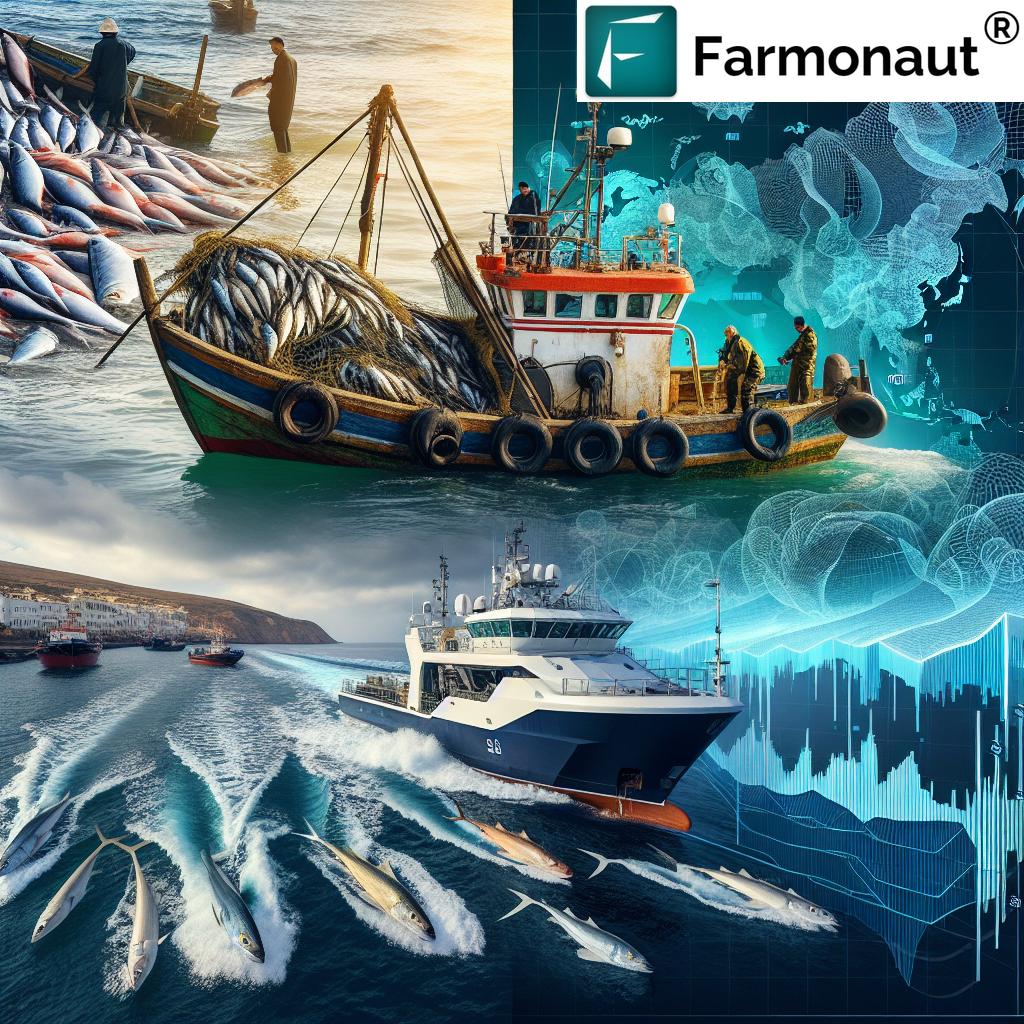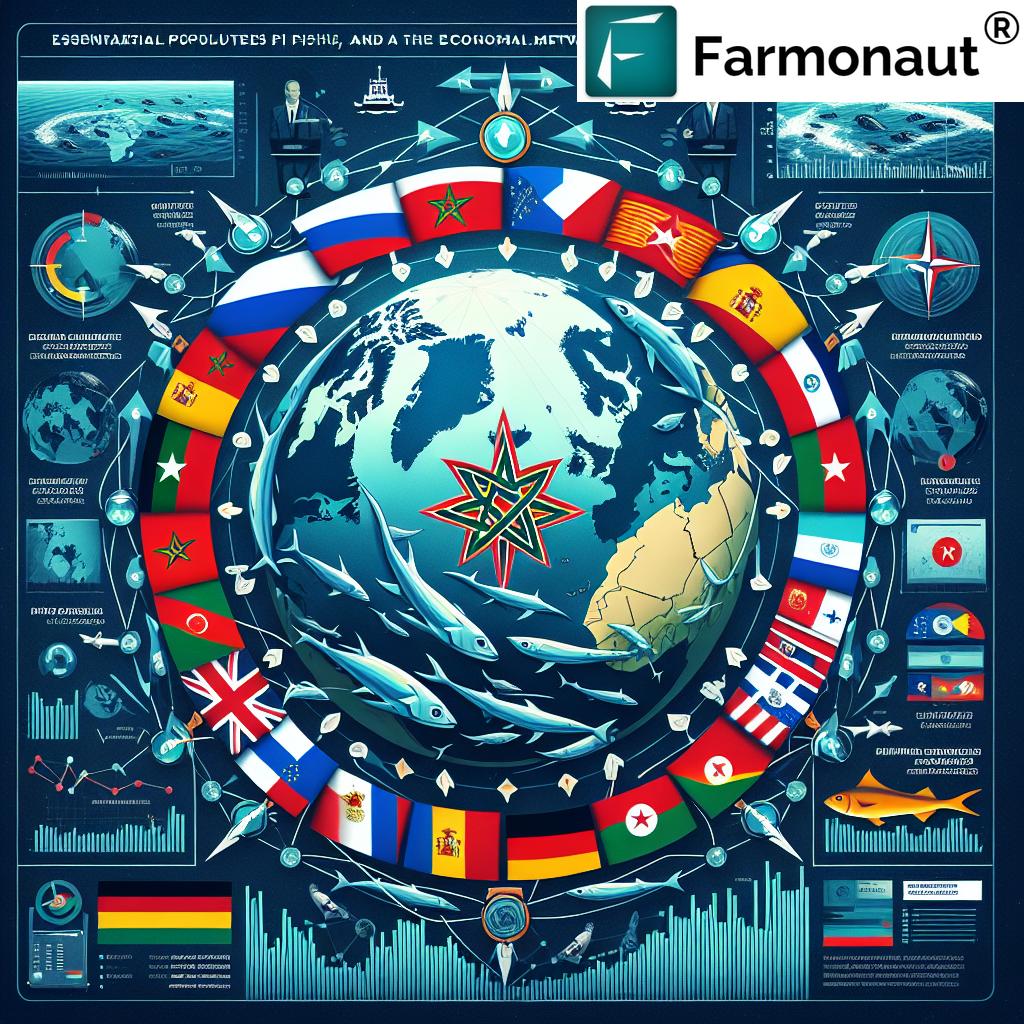Unleash the Potential: Morocco-Russia Fisheries Collaboration Defies EU Ruling and Strengthens Atlantic Research

In a bold move that showcases the strength of international partnerships, Morocco and Russia have announced their eagerness to explore new avenues for enhancing cooperation in the fisheries industry. This development comes at a crucial time, as recent rulings from the European Court of Justice (ECJ) have cast a shadow over Morocco’s fisheries agreements with the European Union (EU).
Russian Vessel Embarks on Atlantic Fish Research
The Russian embassy in Morocco recently announced that a Russian research vessel has begun a mission to assess the utilization of small marine fish species in the Atlantic fishing zone of Morocco. This Atlantic fishing research collaboration marks a significant step in the ongoing Morocco-Russia fisheries cooperation, demonstrating both countries’ commitment to sustainable fishing practices and scientific exploration.
This research initiative is part of a broader framework of Moroccan-Russian maritime agreements that have been in place since 1992. The current agreement, signed in 2020, replaced the previous 2016 accord and allows a fleet of 10 Russian vessels to fish for small pelagic species in Moroccan waters beyond 15 nautical miles.
Strengthening Ties Amidst EU Challenges
The timing of this Russian vessel Atlantic fish research is particularly noteworthy, as it comes in the wake of a contentious ruling from the European Court of Justice. Earlier this month, the ECJ claimed that the EU-Morocco trade relations, particularly in the fisheries and agriculture sectors, “violate” the “right to self-determination for Western Sahara people.”
This ruling has sent shockwaves through the Morocco-EU strategic partnership, potentially jeopardizing long-standing agreements and economic ties. However, Morocco has swiftly responded to the ECJ ruling, describing it as full of errors and indicative of a “complete misunderstanding of the realities of the case if not a blatant political bias.”

International Support for Morocco
Despite the ECJ ruling, Morocco has received strong support from various international partners, most notably Spain. Spanish-Moroccan fisheries relations remain robust, with Spanish Minister of Agriculture, Fisheries and Food, Luis Planas, affirming that relations between Spain, the EU, and Morocco will continue to advance.
Planas stated, “If someone has had the political ambition, through the reading of these rulings, to try to put the brakes on the advancement of close relations between the EU and Morocco, or between Spain and Morocco, they have been mistaken, because those relationships are not only based on work but on mutual trust and the search for solutions.”
The Importance of International Fisheries Agreements
International fisheries agreements play a crucial role in managing marine resources and fostering cooperation between nations. The ongoing collaboration between Morocco and Russia in this sector underscores the importance of such agreements in promoting sustainable fishing practices and scientific research.
- Sustainable resource management
- Scientific collaboration and knowledge sharing
- Economic benefits for participating nations
- Strengthening diplomatic ties
As the world grapples with challenges such as overfishing and climate change, these agreements become ever more critical in ensuring the long-term health of our oceans and the communities that depend on them.
The Future of Morocco’s Fisheries Sector
The recent developments in Morocco international fisheries relations highlight the country’s strategic approach to diversifying its partnerships and strengthening its position as a key player in the global fishing industry. By fostering cooperation with Russia while maintaining strong ties with European partners, Morocco is demonstrating its ability to navigate complex international waters.
The focus on pelagic species fishing in these agreements is particularly noteworthy, as these species play a crucial role in the marine ecosystem and are of significant economic importance. By collaborating on research and sustainable fishing practices, Morocco and its partners are working towards ensuring the long-term viability of these valuable resources.
Implications for Western Sahara Fishing Rights
The ongoing debate surrounding Western Sahara fishing rights remains a complex issue that intersects with broader geopolitical concerns. While the ECJ ruling has brought this issue to the forefront, it’s clear that Morocco and its international partners are committed to finding solutions that balance economic interests with respect for international law.
As discussions continue, it will be crucial for all parties to engage in constructive dialogue and seek mutually beneficial outcomes that respect the rights and interests of all stakeholders in the region.
Leveraging Technology for Sustainable Fisheries
In the pursuit of sustainable fishing practices and effective resource management, technology plays an increasingly important role. Farmonaut, a leading provider of satellite-based agricultural and marine monitoring solutions, offers valuable tools for the fisheries sector.
By leveraging satellite data and advanced analytics, Farmonaut’s technology can help:
- Monitor fish populations and migration patterns
- Detect illegal fishing activities
- Assess the health of marine ecosystems
- Optimize fishing routes and practices
For those interested in harnessing the power of satellite technology for fisheries management, Farmonaut offers a range of solutions:
Farmonaut API – Access real-time satellite data for custom applications
API Developer Docs – Comprehensive documentation for integrating Farmonaut’s technology
Conclusion: A New Chapter in Morocco’s Fisheries Sector
As Morocco continues to navigate the complex landscape of international fisheries agreements, its collaboration with Russia and ongoing partnerships with European nations demonstrate the country’s resilience and strategic vision. The EU Morocco fisheries ruling impact may present challenges, but it also opens doors for new opportunities and strengthened relationships with diverse partners.
The future of Morocco’s fisheries sector looks promising, with a focus on sustainable practices, scientific research, and technological innovation. As the country continues to unleash its potential in this vital industry, it sets an example for how nations can balance economic interests with environmental stewardship and international cooperation.
© Morocco World News. All Rights Reserved. This material may not be published, rewritten or redistributed without permission.


